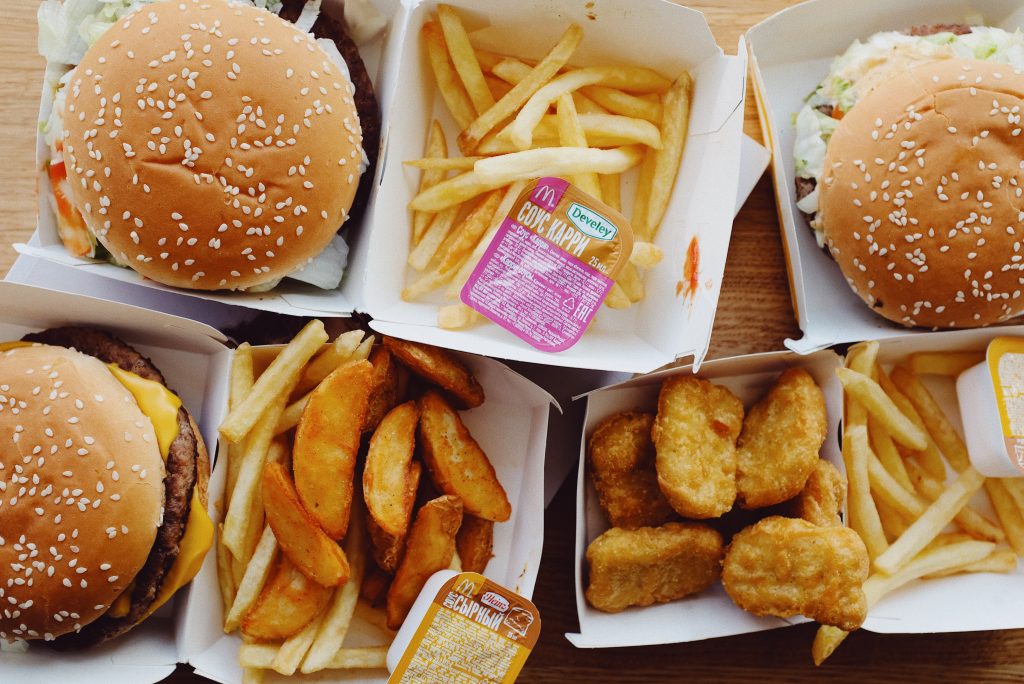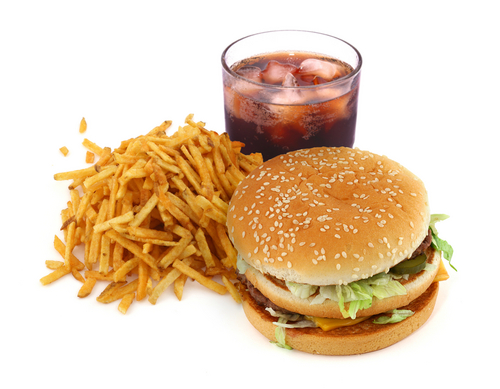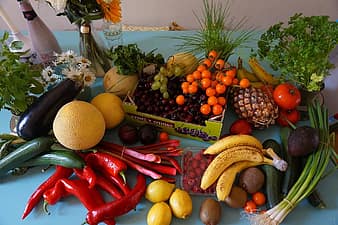The Standard American Diet (the SAD diet) is saturated in toxins.

Sweets are loaded with sugar. Snacks are loaded with salt. Meat is loaded with saturated fat. The fact is, you’re lucky if there are any nutrients left at all—most have been stripped away and replaced with a cocktail of chemicals that you can’t even pronounce. And you don’t have to take my word for it, just look at the ingredients!
Anything with bread and meat (hamburgers, hot dogs, pizza and pastries) seems like the staple of the American diet. But there is an old saying, we are what we eat. And it shows.
According to the CDC, a whopping 40% of Americans are obese, and over 50 million Americans are living with diabetes. Out of every 100,000 men and women, approximately 439 of them will be diagnosed with cancer.
Why are things like this?
There are many factors that can be attributed to all of this of craziness, but largely (no pun intended) it comes down to what we eat.
The food that everyone is eating

In most developed nations, cheap fast food is available in abundance, and we eat it constantly. We often gravitate towards foods that taste good, is cooked fast, and comes cheap.
We don’t eat to survive anymore, we aren’t even interested in the nutrients we need, because no foraging or hunting is necessary. It’s not about survival. We often eat just to satisfy our cravings for sugar, fat and salt. All you have to do is pull up to a drive-thru window.
The situation is no better when you shop for your own food.
When you walk into a grocery store and go up and down the aisles you will see rows and rows of products that are boxed, packaged, and wrapped in plastic. Almost everything is processed. And when you start reading the ingredients, pretty much all of it looks to be unhealthy in some way and this is a real problem.
Cheap food comes at a great cost

Companies that operate in the food industry are constantly seeking to raise their profits. They do this by keeping their prices competitive and using the cheapest ingredients possible. This is the only way that they can make food in bulk and also keep their prices low.
Sadly though, even the “organic” options that they give us often still source cheap ingredients (and GMOs) because many businesses are solely interested in increasing their profits. It seems like money is always the only thing that drives productivity. Profits always take precedence over human health for them and nothing will change unless consumers wake up and only start buying healthier options.
Every single time we eat, we are either fueling disease or feeding health. But we do have a choice. We can eat highly processed foods, or, we can eat whole/natural foods.
Ineffective food regulations
Even though the FDA in America requires food manufacturers to put nutrition labeling on the packaging of their food, it doesn’t strictly enforce the amounts of additives (like sugar salt) that gets put into such products.

Chemicals are added into the mix of ingredients to help processed food have a longer shelf-life, and at fast food restaurants, you can buy a hamburger as cheap as $1 dollar, whereas a salad might cost almost $5 dollars. Many families struggle financially to afford their necessities so naturally they will look for cheaper options.
The more flavor these foods have (usually provided from sugar, fat and salt) the more consumers seem to like them. The more sales these companies make, and the more wealthier a few executives at the very top become. But the majority of consumers suffer with poor health, a shorter life span, and diminished happiness as a result of poor nutrition.
So we cannot solely rely upon food regulations to get every single thing right.
Eating food is essential for human survival, but the food industry is primarily a business at its core, and they are out to make profits. And since selling of food for profit is something that won’t change any time soon, what can be done?
Rising above it
Consumers are often confused by all of the conflicting opinions about nutrition that some think EVERYTHING is bad. But the truth is, everything is not bad.

The healthiest foods that you can eat are the foods that come directly from nature: whole foods like fruits, vegetables, legumes, nuts, oats and grains. These foods don’t cause any adverse effects from eating them over a prolonged period of time. In fact quite the opposite is true; people lose weight, they have improved health, and may even live longer. These foods are packed with phytonutrients and antioxidants which nourish our bodies, and remove free radicals.
FACTS
- No nutritionist in the world will ever say that eating fruits and vegetables is unhealthy.
- 90 percent of all cancers are due to poor diets that contribute to the growth of free radicals.
- Most diseases are NOT hereditary, it’s our habits that are hereditary. But habits can be changed.
Changing how we eat also means we can educate ourselves about nutrition and then work hard to stick to a healthy diet. Many foods that taste extremely sweet or savory are that way because huge amounts of refined sugar and salt. Very little nutritional value. Additionally, foods with a lot of oil have too much fat, which is not healthy. Try to remember that.
Try to substitute a candy bar for some fruit. Replace a hamburger for oatmeal. Swap salty/oily snacks for grapes, nuts, or other kinds of berries. Think of your body like an investment for the future. Eventually your body will stop craving foods that offer little to no nutrition, and you’ll feel more energy and vigor from giving your body what it needs so it can run at peak performance.
It might be a bit more expensive to buy natural organic foods, but healthcare is also not cheap. So eat clean today, and save on hospital bills tomorrow. Good health to you!
Additional Resources
- CDC – Obesity and Overweight Statistics
- Statistics from the National Cancer Institute
- Current Eating Patterns in the United States
- The Standard American Diet is Even Sadder Than We Thought
Disclaimer: the information provided on this web site is for educational purposes only, and does not substitute for professional medical advice. The author of this blog is not a licensed dietitian or medical professional. Please consult with a licensed medical professional or healthcare provider if you are seeking medical advice, diagnoses, or treatment. We are not responsible for any decisions that you choose to make.